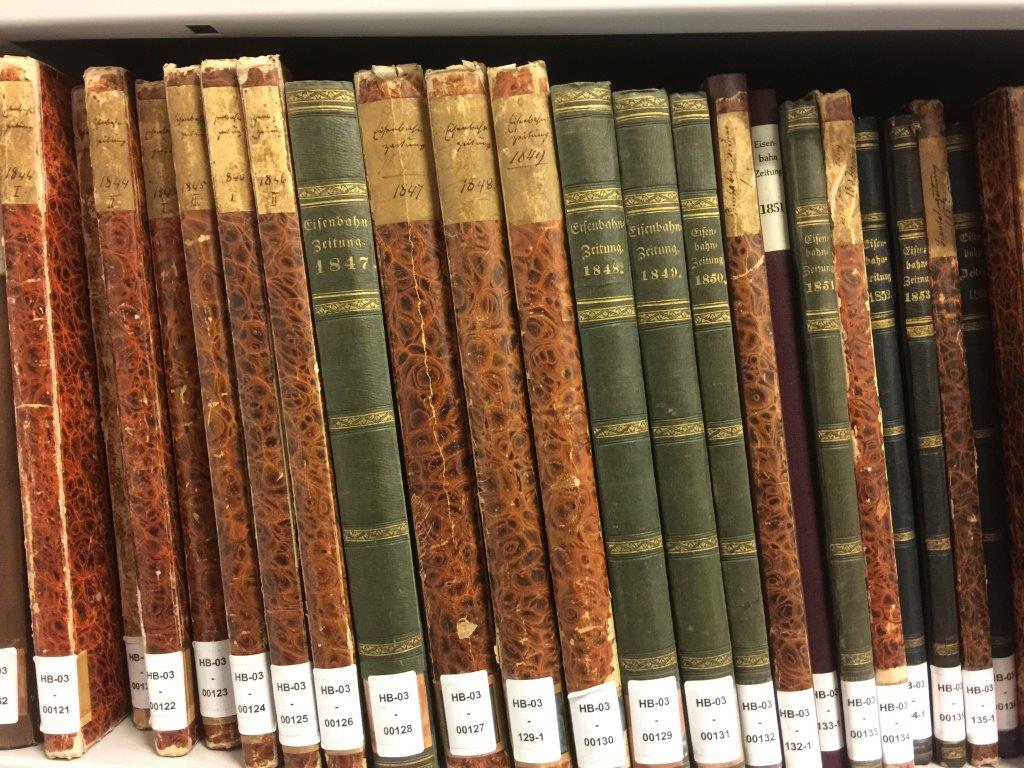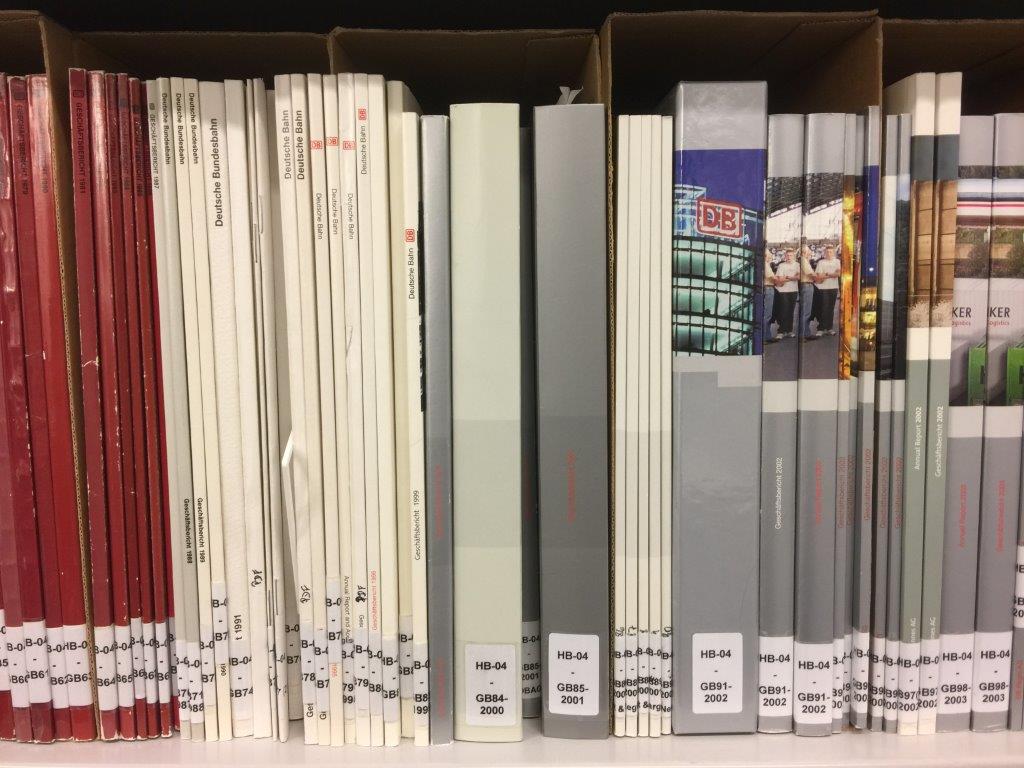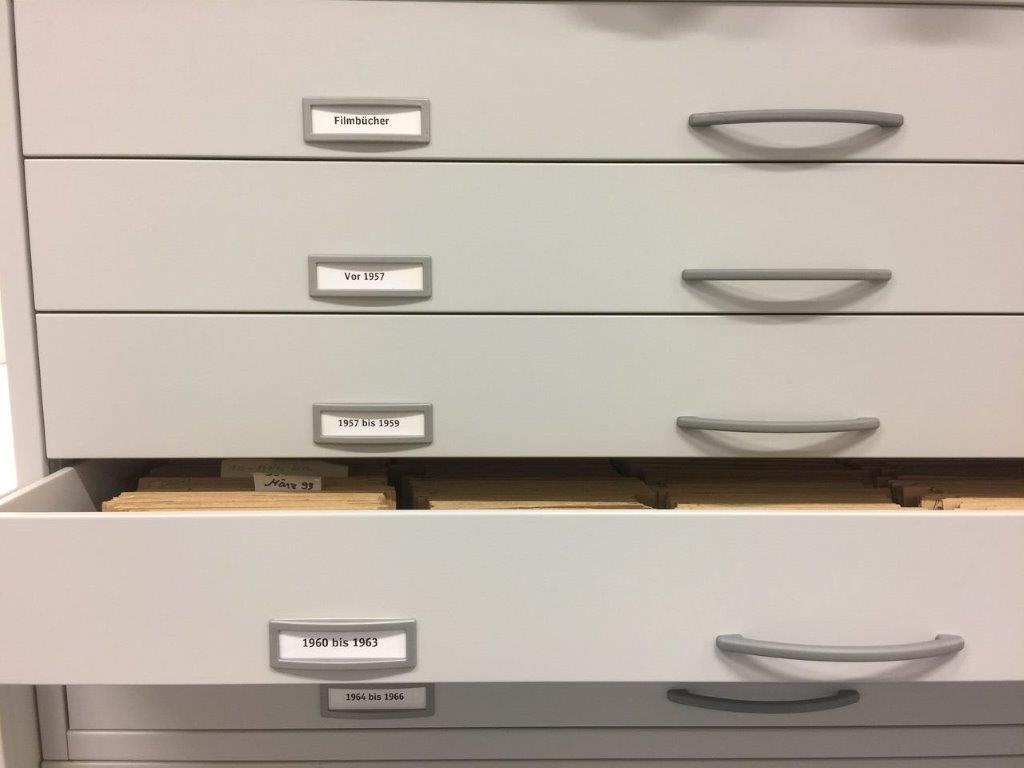BGHS.NEWS
Practitioners in Talk Part 29
::Non-university careers::
Practitioners in Talk Part 29
Many ways lead out of the BGHS. But where do postdoctoral paths lead? We talk to historians and sociologists who have taken up their career outside the university. Susanne Kill spoke to us about her work for the Deutsche Bahn AG.

(Figure 1: Susanne Kill, Copyright: Susanne Kill)
Mrs Kill, you did your PhD in History in 1995. If you remember starting your career: How did you find your way into the job?
I joined the Deutsche Bahn AG (DB AG) shortly after the railroad reform. The railroad reform, i.e. the transformation of the Bundesbahn and Reichsbahn into Deutsche Bahn AG, which is organized under private law, meant that from 1994 onwards the railroad was no longer obliged to hand over files to the Bundesarchiv. Files created before 1994 are offered to the Bundesarchiv. All files from 1994 onwards are stored according to commercial law deadlines. Selected documents are permanently stored in the Historische Sammlung of the DB AG. I have been working there since 1999.

(Figure 2: Railway Journal, Copyright: Deutsche Bahn)
How did you come to your current position?
In the mid-1990s, I was in charge of a research project on the railroads in Germany at the Gesellschaft für Unternehmensgeschichte: on the cultural, economic and political history of the railroads from the 19th century to reunification. In this context, I was asked if I would like to apply for the newly created position as head of the Corporate Archives of DB AG. When I applied, I had an interview at the DB Board of Management in Ruschestraße in Berlin-Lichtenberg. This is where the Stasi had its headquarters until 1990. That is an impression that will stay with me forever: Everything still smelled like the GDR. It was a completely different world than Frankfurt University or the Gesellschaft für Unternehmensgeschichte. There were many and very different people working there. I think that is also something that has kept me at Deutsche Bahn until now: That Deutsche Bahn is so diverse and always a part of contemporary history.

(Figure 3: Annual reports of the Deutsche Bahn, Copyright: Deutsche Bahn)
You work for Deutsche Bahn. Where exactly do you work?
We have a Historische Sammlung here in Berlin, where three of us work. We have been trying to preserve the history of Deutsche Bahn since 1994 in files and publications. At the same time, we offer historical advice and, because we operate a large archive database together with the DB Museum in Nuremberg, we are also able to provide information on the history of the predecessor organizations of Deutsche Bahn AG: i.e. the Bundesbahn, Reichsbahn and Länderbahnen. At the moment, for example, I am working on a traveling exhibition on the railroads under National Socialism.

(Figure 4: Negative cabinet in the Deutsche Bahn archive, Copyright: Deutsche Bahn)
You head the Corporate Archives and Historische Sammlung at Deutsche Bahn. What are your most important tasks?
Firstly, my job is to be able to classify historical topics and provide information, especially on the subject of National Socialism and German division. Secondly, we look after the Historische Sammlung and – in cooperation with the DB Museum in Nuremberg – the archive and museum software. Thirdly, it is my job to bring inquiries in the area of historical public relations to the right place, to answer them myself and to prepare them for the website, for example.
What tips do you have for colleagues from sociology or history who are interested in a career in the occupational field you are in?
My first tip is: cultivate contacts! For example, it is a good idea to attend a conference of the Association of Business Archivists. This is the contact exchange for business historians and archivists. The contact exchange is important for us, because you have to imagine: You are relatively alone as an archivist or historian in a large company. That makes it all the more important to network with other colleagues in other companies. Secondly, I think that a scientific interest does not contradict the work in the company archive. If you don’t know the sources, you can’t do serious corporate history. It is clear to everyone by now that if you talk garbage, you are going to fall flat on your face in public. Corporate historians should also know the critical parts of corporate history. This knowledge can also be important for corporate management. Thirdly, I have noticed that many historians and sociologists work in large companies, for example in corporate communications. For example, in analyzing long-term economic and societal developments in order to prepare strategic decisions for corporate management. Those who are interested in this are faced with the question of whether it is really history or sociology that they want to stay with thematically.
Mrs Kill, thank you for the conversation!
The interview was conducted by Ulf Ortmann. You can find the complete (german) interview here.
Further information on the non-university careers project is available here.
The previous interviews in the series are available here.